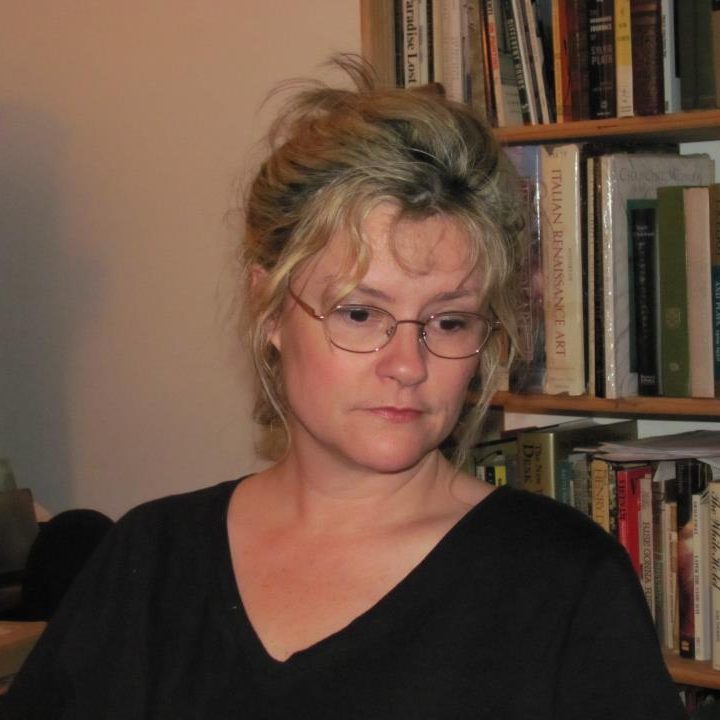The House Subcommittee on the Coronavirus Pandemic convened recently for the first time and held a roundtable, “Preparing for the Future by Learning from the Past: Examining Covid Policy Decisions.” When reading politicians and bureaucrats’ words, George Orwell’s 1946 essay, “Politics and the English Language” comes to mind.
I am teaching the essay now to AP high school English students and assigned them to write an essay in which they examine and critique a piece of writing – government mandate, report, policy, speech, meeting transcript, or other text with Orwell’s points as a guide. Now, I couldn’t help but do this assignment myself.
Chaired by Rep. Brad Wenstrup (R-Ohio), the group heard testimony from Jay Bhattacharya, M.D., Ph.D., professor of medicine at Stanford University; Martin Kulldorff, Ph.D., professor of medicine at Brigham and Women’s Hospital; Marty Makary, M.D. M.P.H, chief of islet and transplant surgery and professor of surgery at Johns Hopkins University; and George C. Benjamin, M.D., M.A.C.P., executive director of the American Public Health Association.
Most of the witnesses criticized the overall public health response to Covid, which Kulldorff described as one of “the worst public health mistakes in history.” And yet, language from some on this committee falls into patterns Orwell warns about in his essay. His warnings are dire. Patterns include cliches, meaningless words, ready-made phrases, passive voice constructions, vague pronoun references, platitudes, and government jargon.
Orwell argues that these language patterns destroy truth and beauty and clarity; they cloud thinking and collapse culture with their obfuscations. When reading or listening to such speech, we find ourselves mired in the muck of sloppy language that confuses, disorients, and depresses, and in the extreme, such language gets people killed, because if we don’t question it, and allow it to frustrate and anger us, it lulls and numbs our minds. We then smile and nod and remain confused and unsure of what governments or dictators are actually doing before it’s too late.
Even the title of the “roundtable” of the “House Select Subcommittee on the Corona Virus Pandemic” makes me cringe after reading Orwell. Why would it be a “subcommittee” rather than a main committee when governments unleashed destruction upon the US and the world, including job loss; businesses destroyed; deaths of despair; suicides; starvation from supply chain disruptions; increased addictions; community breakdowns; shattered trust in institutions?
“Preparing for the Future While Learning From the Past: Examining COVID Policy Decisions” has the kind of vapid tone, with its canned phrases and requisite well-placed colon, that makes our eyes glaze over as we have a sinking sense that those responsible will say almost nothing and will do even less. But they had a meeting – a “roundtable,” which sadly, suggests politicians circling, round and round, not acting.
At the meeting, they were “Examining Covid Policy Decisions,” according to the title, but why didn’t government officials follow policy or health decisions decided upon long ago, such as following established steps to test the safety of a vaccine, which usually takes years? Why did government and disease bureaucrats ignore natural immunity and, instead, force vaccines and mandates?
“I guess we knew about it [natural immunity] since 430 BC, the Athenian Plague, until 2020, and then we didn’t know about it for three years, and now we know about it again,” said Kulldorff.
Why the need for the “roundtable” to examine decisions when government bureaucrats didn’t even follow the decision of our nation’s Founders, who wrote the First Amendment to the US Constitution that guarantees freedom of speech and of the press? In the last three years, the US government, instead, colluded with technology companies to suppress free speech on natural immunity, early treatments for Covid, and vaccine injuries. Suppression of free speech continues. The First Amendment was a well-established “policy decision” that governments simply decided to ignore.
For three years, Orwell’s examples of bad language have spread everywhere. Language viruses infect culture at every level from empty, made-up phrases like “social distancing” or “the new normal” to terribly meaningless words like “misinformation” and “disinformation” to describe writing or speech with which someone, who considers himself an authority, disagrees.
Rep. Brad Wenstrup’s (R-Ohio) opening remarks describe the function of the subcommittee. He used confusing phrases like “vaccine and therapeutic development and subsequent mandates.” He continued, stating, “We are here to deliver an after-action review of the past three years. To learn from the past, not just what went wrong, but what was done right, and to prepare for the future.” An “after-action review” is the type of meaningless, ready-made phrase Orwell notes in his essay. “Not just what was done wrong, but what was done right, and to prepare for the future” is full of these phrases, causing us to fall asleep for a few seconds while we read them.
Orwell urges us to correct bad political speech by asking questions, like “What am I trying to say?” and “What words will express it?” or, he writes, “You can shirk [this responsibility] simply by throwing your mind open and letting the ready-made phrase come crowding in.”
“This is work that must be done, must be done thoroughly, and must be done with reverence with an eye toward the truth and based on facts,” Wenstrup continued. The vague expletive at the beginning of this sentence would make Orwell cringe along with the passive voice constructions, “work that must be done” with no subject performing action of the verb. Of course, the work “must be done.”
But by whom? Parallelism tries to make this sentence sound important, but platitudes and canned phrases, like “reverence with an eye toward” muddy this speech. Where were these “musts” two or three years ago? In addition, the vacuousness of “with an eye toward truth and based on facts” sounds odd and sad – truth and facts both, now? Where have they been hiding until now?
Wenstrup said the experts present can “help us chart a path forward; to help us understand what policies went wrong and how we, as a country, can improve.” Orwell notes phrasings like these when he writes, “Modern writing at its worst does not consist in picking out words for the sake of their meaning and inventing images in order to make the meaning clearer. It consists in gumming together long strips of words which have already been set in order by someone else, and making the results presentable by sheer humbug.” Certainly, we would not chart a path backwards.
Again, where was the “charting” when government bureaucrats closed schools, banned early treatment drugs, and bypassed vaccine safety protocols? Thousands of doctors, epidemiologists, and scientists supported protecting old and sick people while keeping societies open. Hundreds of doctors studied and prescribed successful early treatments and their employers ridiculed, harassed, threatened, and fired them while the media slandered them.
“The American people deserve to know and understand how and why these impactful decisions were made,” said Wenstrup. “The American people deserve to know and understand” is an example of Orwell’s category: “words that have been set in order by someone else.” It is cliché and thought-stopping. The passive voice obscures responsibility. Mistakes were made, decisions were made, things were done in these sentences without clear subjects. “At the end of this process, our goal is to produce a product, hopefully bipartisan [of course] based on knowledge and lessons learned, “ Wenstrup stated. We can look forward to a bipartisan product at the end of the process.
Rep. Paul Ruiz (D- Calif.) said the pandemic, “laid bare vulnerabilities and inequities in our public health infrastructure and our economy.” It is hard to figure out what this sentence means as it includes prepackaged phrases like the ones Orwell discusses. Certainly, having some people deliver goods and services to others staying home was not equal.
Ruiz said, “We need to understand the lessons learned, learn all the barriers of misinformation, disinformation, the politicization of this and avoid those for the sake of our nation, in order to save more lives.” This statement is practically incomprehensible with its unclear pronoun references in “this” and “those” and the fabricated words, “misinformation” and “disinformation,” Of course, we want to “save more lives. . . for the sake of our nation.”
Orwell writes, “In our time it is broadly true that political writing is bad writing. Where it is not true, it will generally be found that the writer is some kind of rebel, expressing his private opinions, and not a ‘party line.’ Orthodoxy, of whatever colour, seems to demand a lifeless, imitative style.”
Makary, a rebel and critic of the Covid response, uses subjects and clear verbs. He says that public officials made tragic mistakes during the pandemic like “ignoring natural immunity,” “closing schools,” “masking toddlers,” and “pushing boosters for young people.” Bhattacharya said, “Public health bureaucrats operated more like dictators than scientists during the pandemic, sealing themselves off from credible outside criticism.”
George C. Benjamin, M.D., M.A.C.P., present at the meeting, supported the public health response to Covid, and his language reflects the party line. He said, “We must remember the limited information we had when we made these decisions.” However, scientists and public health experts like Bhattacharya, Kulldorff, and Makary as well as Drs. Scott Atlas, Sunetra Gupta, and Harvey Risch, among many others, generously shared information on alternative approaches and early treatment, yet government officials and the media ridiculed, censored, and threatened them. Many who shared information lost reputations and jobs.
Benjamin continued, saying that “we must remember . . .the fact that our knowledge base and science continues to evolve over time.” Wordy phrases and pretentious diction like “the fact that” as well as ready-made, empty phrases like “our knowledge base” confuse listeners and readers. Does “our knowledge base” mean – what we know? Science that “continues to evolve over time” is an obvious and unnecessary space-filler, especially when governments ordered us to obey “The Science,” the one and only static set of their edicts for three years. Yes, science evolves, and how else would it evolve but “over time?”
Benjamin noted, “We created a safe and effective vaccine by every standard that we understand safety and efficacy today, in record time.” Orwell writes in his 1946 essay that we cannot improve language and clarity immediately, “but one can at least change one’s own habits, and from time to time one can even, if one jeers loudly enough, send some worn-out and useless phrase . . . or other lump of verbal refuse – into the dustbin where it belongs.” Useless phrases piled up over the last three years and in this meeting of the “House Select Subcommittee on the Coronavirus Pandemic.” Among them are “knowledge base,” “by every standard,” “in record time,” “safe and effective,” and “long-term implications.” Orwell also criticizes political speech that uses pretentious Latinized style while “pad[ding] each sentence with extra syllables [to] give it the appearance of symmetry.”
Wenstrup praised the vaccine, describing it as “amazing” while also saying, “we knew . . . that even people who were vaccinated got Covid.” If the vaccine was so amazing, then why did governments lie and President Joe Biden and other bureaucrats everywhere claim that if you took the shot, you would not get Covid? What was truly amazing was that so many people believed the lies.
Ruiz said that “we are still dealing with the long-term implications of this public health crisis.” He added, “the spread of misinformation or disinformation . . . undermined the American people’s trust in our nation’s public health institutions and in each other.” We might respond that our trust is shattered in Ruiz, and other representatives, more than in each other. We pay politicians’ salaries and paid for all the “distancing” stickers and commercials and reams of paper generated to create and sustain lockdowns and to advertise vaccines.
Ruiz said “misinformation” and “disinformation” may “lead to noncompliance or failure of therapeutics where people are making decisions that put themselves and their families in harm’s way.” I imagine Orwell would love to see the vacuous,“ put themselves and their families in harm’s way,” in the dustbin where it belongs. I wonder to what “failure of therapeutics” Ruiz refers. The medicines destroyed by government officials and media censorship while they pushed through a vaccine with an Emergency Use Authorization?
Benjamin added, “There are many people out there who have a large bullhorn who have made it worse” but he conceded that “nobody should be censored.” Many people? Who are they? I wonder, “worse” than what? Many people with one bullhorn? To what does the pronoun,“it,” refer?
Orwell writes, “Political language – and with variations this is true of all political parties, from Conservatives to Anarchists – is designed to make lies sound truthful and murder respectable and to give an appearance of solidity to pure wind.” He published his essay in 1946. The problems with political language persist and have worsened. Orwell argues that a scrupulous writer, in every sentence she writes, will ask herself at least four questions: “1. What am I trying to say? 2. What words will express it? 3. What image or idiom will make it clearer? 4. Is this image fresh enough to have an effect?” He adds that the writer will also ask two more: “1. Could I put it more shortly? 2. Have I said anything that is avoidably ugly?”
Fresh imagery and simple, direct phrasings with natural-sounding words all enliven speech and writing, according to Orwell. He recommends constantly guarding against ready-made phrases because “every such phrase anaesthetizes a portion of one’s brain.”
“When the general atmosphere is bad, language must suffer,” he writes, and the general atmosphere of the last three years has certainly been bad. But Orwell also adds hope when he states, “the decadence of our language is probably curable.” We may ask ourselves – how?
Published under a Creative Commons Attribution 4.0 International License
For reprints, please set the canonical link back to the original Brownstone Institute Article and Author.









